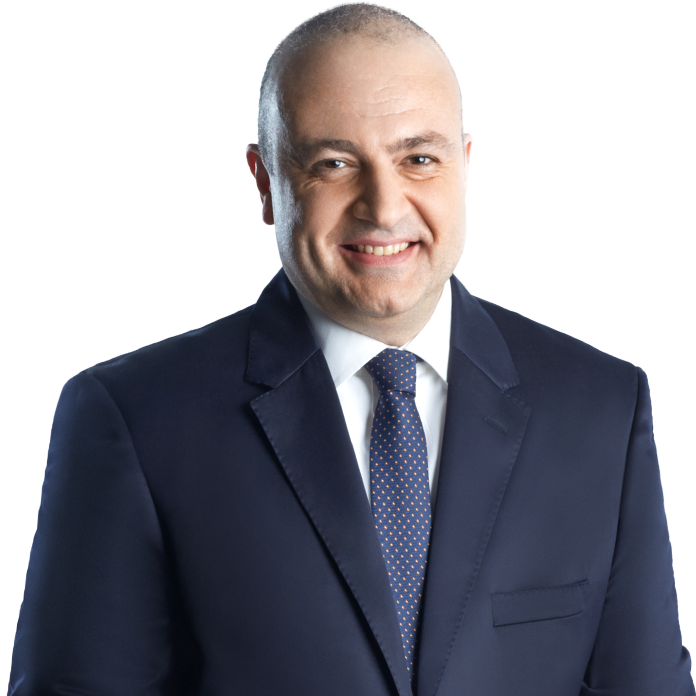As you read these lines, it will all be over and done with; but at the time this article was being written, it was all yet to begin.
At 10:00 p.m. on Tuesday night, the Turkish Armed Forces’ (TAF) “ceasefire” button may be deactivated, and the purge of the remaining terror elements could once again be initiated. Because President Recep Tayyip Erdoğan and his Russian counterpart Vladimir Putin’s Sochi meeting will have ended.
Roughly, the current state is: Albeit by force, a deal was reached with the U.S. Now, the rest needs to be concluded by Russia. Things might sour if Moscow causes problems.
Even those who tie their quest for the future to the United States in Turkey’s internal politics are giving Kremlin the red-carpet treatment-- such is the period we are currently in. For them, it does not matter whether the wind blows from the east or the west as long Ankara is in a difficult position.
The U.S. terror corridor targeting the region, the mind behind the construction of an artificial country, and from which countries it breeds on has been long deciphered.
Though, are we able to comprehend how the U.S. withdrawal is going to impact Russia-Turkey relations? Yes. The framework is clear. Therefore, we should also be able to perceive how the Ankara-Moscow rapport will respond to this. That is where it all ties up.
***
Unlike certain internal and foreign dim-witted groups, the U.S. was quick to understand the interest bringing together the two countries: “The U.S. is the problem. First, it needs to leave. Then we will see to it.”
That is the withdrawal. The U.S. is the one that retreated. In this sense, we should not be too upset with the insistence on using the term “ceasefire.” They are referring to it with a different intention, but that is in fact the real situation.
They want us to know that the void is going to lead to a dangerous vacuum between Turkey, Russia, Iran and Damascus, that this will cause a short circuit, and as a matter of fact, that in such a state, Washington will be by Ankara’s side. Can the president’s statement ahead of Sochi and in reference to Iran, including the expression “betrayal,” be added to this flow? Or, should it be taken into consideration within the U.S., Russia, Turkey triangle?
So, could Russia-Turkey relations go off balance?
***
The answer of Washington’s elites is that it is “very probable” that Turkey-Russia relations will sour. It is said that Ankara reaching a deal with Moscow and Damascus in the east of Euphrates, at points such as Manbij, Ayn al-Arab and Idlib, entails great difficulties, that Russia is going to impose Damascus on Turkey, and that because Bashar al-Assad is aware of this, he is telling the Russians visiting him that as soon as he sees the retreat, he is going to say that he does not want the U.S. and Turkey on Syrian territory (“Assad receives Russian delegation,” Oct. 18, 2019, TASS).
On the contrary, Russia is also closely following Turkey-U.S. relations. It sees that some of the bilateral steps taken here are exaggerated. This is as much as our “locals” are able to understand: They say Ankara is exploiting the jealousy between Russia and the U.S. to establish a foreign policy, and that it also has the experience of this mind, which it inherited from the Cold War.
Yes, this too. But it doesn't stop there.
***
Can the momentum of Russia-Turkey relations be comprehended?
How critical is this “momentum”? How wide is Kremlin’s perspective of Turkey? Economically, energy wise, militarily and strategically; for example, will relations with a “NATO country possessing extraordinary strategic value,” which seems to Russia like a “third species,” be sufficient to protect this momentum from foreign influences?
Meanwhile, we need to see that the trap is also set based on this measure. The U.S. accepted the safe zone and had to leave the territory, but it underlined that it was left to Turkey! There is now Turkish military presence in a vast area.
Additionally, the Peace Spring Operation includes Russian and Syrian troops.
Turkey feeling Western/U.S. support by its side is a circumstance that strengthens its hand.
Yet, should this hand be raised by lending it support?
The statements made by both leaders even before the meeting already offered clues of what would happen next.
Erdoğan: “I believe our meeting will offer very serious opportunities for the Peace Spring Operation.”
What are these “very serious opportunities”?
Putin: “I believe the height our relations have reached will help solve all the problems in our region.”
What does, “the height reached solving all problems” mean?
Where does the Russian Defense Ministry’s statement, “We hope the meetings will clarify the situation of these areas,” in response to U.S. President Donald Trump’s, “We secured the oil” statement, while the Erdoğan-Putin meeting was ongoing, fit?
***
As under any circumstance, the Sochi meeting is challenging and leading toward the finale; it is going to be highly detailed. But Russia and Turkey want to reach an agreement. They want to maintain the successful consensus reached so far. Hence, regardless of how burning the meetings are, this morning, you are most likely going to watch the “consensus” on the news.




















